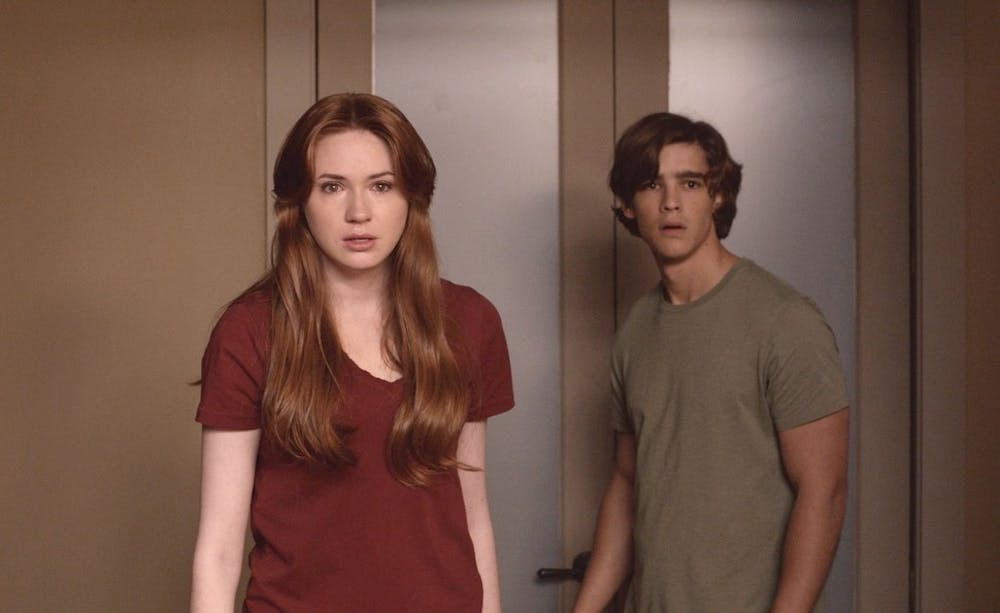In Mike Flanagan’s debut short film “Absentia” from 2012, Flanagan created a spooky sense of disquiet that brought attention to the new director. It also gained enough traction that it led to the expansion of another one of his short films into “Oculus,” a feature length film.
With co-writer Jeff Howard (“Somnia”), “Oculus” tells the tale of a centuries old mirror called the Lasser glass and the obsession of one intensely interested victim hoping for some sort of retribution against it.
Flanagan plays with time intriguingly enough. “Oculus” takes places in two timelines which run simultaneously to each other. Kaylie and Tim Russell’s (played as adults by Karen Gillan and Brenton Thwaites and as kids by Annalise Basso and Garrett Ryan) story begins 10 years before the events of the film with them moving into an unassuming spacious two story house. But with the entrance of a mysterious antique mirror, things in the house begin to go wrong.
In the past, Kaylie and Tim’s mother and father, Alan (Rory Cochrane, “Argo”) and Marie (Katee Sackhoff, “Battlestar Galactica”) start to go insane, and Kaylie believes it’s the mirror causing the trouble. However, in the present Kaylie and Tim remember events differently. Kaylie recounts that their dog walked into their father’s office and never came out, but Tim remembers that the dog simply died of a common sickness. Both of their differing memories serves the divergent narrative corollaries that make up the dramatic conflict in “Oculus.”
Flanagan finds these interesting wrinkles in “Oculus,” exploiting absolutely all of them to create an incremental sense of dread. Once Kaylie and Tim lock themselves inside their former childhood home with the Lasser glass, Flanagan twists alternate realities by having Kaylie chomp down on a light bulb, confusing it for an apple, and re-running the events that led to their mother and father’s deaths inside the house.
While “Oculus” tends to keep quiet about the motivations of the malevolent Lasser glass, the film keeps too much from the audience. Kaylie has one throwaway line, which hints at what exactly is causing the mirror to wreak centuries of havoc for its owners, but even as “Oculus” moves fast to its conclusion, it holds too much back except when it comes to ramping up violence.
Gillan (“Doctor Who”) and Thwaites (“The Signal”) give admirable performances although there are many instances in which those performances become overcooked. Thwaites’ Tim has reason to question his sisters antics to destroy the Lasser glass, but counter to the assumption that he’s a logical entity, never does the suggestion to run far away come up until much later into “Oculus.”
“Oculus,” for all its inventive budget tightened atmosphere, shows potential to be something far better than what it is. Without connecting all of his ideas through something that would make the film expand the possibilities of the conceit, and a big finish to tie the film together, Flanagan’s “Oculus” gets very messy.





